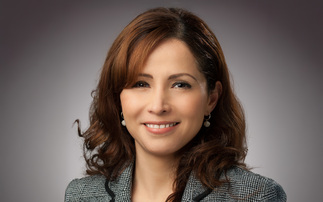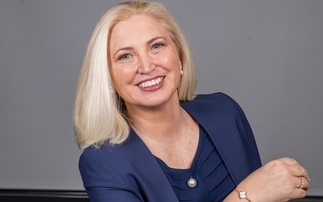The industry has widely accepted that this year, dominated by the devastating effects of the Covid-19 pandemic and rising awareness of inequality amid the Black Lives Matter protests in the US, has highlighted the importance of the 'S' in ESG investing.
However, even as human rights, working conditions and diversity dominate headlines, the issue of quantitatively measuring the social impact of investments is far from being solved, with inconsistency of ESG data and the wide range of social issues to be measured making it harder to quantify the social aspect of ESG than the environmental and governance parts.
Yet market experts believe it is far from impossible to measure the social impact of investments and as end investors increasingly focus on this issue, the number of industry initiatives that address the social element continues to grow.
IW Long Reads: Are carbon offsets the answer to the climate change crisis?
Vanessa Bingle, head of ESG at Alpha FMC, says: "We are seeing some traction in the market placing an increased focus on social issues. As many asset managers adopt the SASB (Sustainable Accounting Standards Board) materiality framework, they are now routinely considering social factors when investing - such as human rights, customer welfare and labour practices.
"We also see increasing take-up of industry collaborations for more and standardised social disclosure, such as the Workforce Disclosure Initiative."
The UN Sustainable Development Goals (SDGs) also provide a framework against which fund managers can measure the social impact of their portfolios, with 17 SDGs such as zero hunger and gender equality and 169 associated targets which can help track progress.
Olivia Sibony, CEO of SeedTribe, says: "The key is really zoning in on the specific impact and then you can measure it quantitatively. So for example if you're looking to empower women, and you measure that by the number of jobs you've helped create for women, then you can measure quantitatively.
"And ideally going a level deeper, talking about long-term, sustainable, meaningful jobs. The way to measure this would be surveying the women before and after, so that they feel fulfilled in the 'meaningful' job and measuring the impact a year later, for example, if that's the agreed measure of long-term."
Plugging the data gap
Meanwhile, key data providers such as Bloomberg and Refinitiv are stepping up their efforts to improve the availability of social data in an effort to plug the gap that investors are faced with when trying to measure the 'S' in ESG.
Refinitiv believes it is "absolutely possible" to assess companies' relative performance across social themes using hard data and has increased its focus on this issue.
Register now to watch Investment Week's Sustainable and ESG Investment Awards 2020
This includes the recently announced partnership with Fortune to make corporate diversity disclosure the new standard of doing business and the Working Group it co-established with the Thomson Reuters Foundation and other partners to emphasise the importance of measuring the social dimension.
Elena Philipova, head of ESG at Refinitiv, says: "Clearly, there are important data gaps to have an even more comprehensive scoring but we already have enough data in the required format, that is comparable and enables peer comparison to inform investment decisions."
Lilian Wang, impact assessment and engagement director of Arisaig Partners, adds that it is important to be able to trust the data used to measure the social impact of investments. To this end, she proposes a number of ways to validate this data.
This includes gaining independent assurances in line with international standards such as the International Standard of Assurance Engagements (ISAE) 3000; using third-party impact measurements as an independent 'second opinion', such as Upright's net impact model based on artificial intelligence; and conducting customer surveys, which are becoming easier to implement as technology develops.
Bloomberg is another providers that is using a machine learning model to evaluate companies' social performance based on data from global newswires, while it has also developed a Board Composition Score, which awards each company a score from 0 to 10 based on a proprietary quantitative model.
Better performance
It is not just concern for the wellbeing of humanity that is driving such a huge focus on social issues, however.
Research shows that portfolios that invest in companies that score highly on various social metrics perform better than companies that score highly on other ESG issues.
For example, the Refinitiv Diversity and Inclusion index, which ranks over 7,000 companies to identify the top 100 publicly traded companies with the most diverse and inclusive workplaces, has outperformed the MSCI World ESG Leaders GR index every year since inception in 2014 (see table, below).
Similarly, Refinitiv analysis shows that companies that score in the top decile for cultural diversity, board gender diversity and the proportion of female managers outperformed those in the bottom decile by at least five percentage points each in 2019.
The same is confirmed by research conducted by Toronto-based company The S-Factor Co., which has developed its own social performance index, MSPI.
This measures companies' social impact in relation to their compliance, best-practice norms, public sentiment, externalities and financial performance.
MSPI is a float-adjusted market cap weighted common stock index which covers more than 1,300 companies screened via a multi-stage proprietary selection process based on the S-Factor scoring algorithms.
From the beginning of the year to 22 July, the index has outperformed various ESG-focused indices, including the Dow Jones Sustainability World index, the Jantsi Social index and the Arabesque Systematic index.
MSPI was up 0.5% over the period, while the other three have returned 0.34%, -1.9% and -9.6% over the same period, respectively, in US dollar terms.
The firm says its methodology takes into account every global social code, regulation, policy, framework, strategy and impact theory, applying this evaluation method to over 42,500 public companies with a five, and in some cases, ten-year history of performance in these areas.
Bonnie Lyn de Bartok, founder and CEO of The S Factor, says: "We are on a mission to close the gap in information. This is the next generation of ESG. It's not about solving problems and answering questions; it's diagnostic, not prescriptive."
While so far the firm has been applying its technology to individual company analysis, de Bartok says The S-Factor is now being asked to work in fund analytics to apply these same principles to measuring the social impact of investments - and she believes there is no reason this cannot be applied to fund analytics.
"Almost every fund in the world is investing in the same 10,000 companies, so we only have to score those companies and monitor them on an ongoing basis," she says.
Hurdles
However, despite the positive developments, it is hard to ignore the fact that social impact is difficult to measure and relying on third party ratings alone is unlikely to be enough for managers looking to achieve real positive social impact.
James Lindley, founder of Castell Wealth Management, says one of the issues is that existing measurements often "evaluate what is convenient to evaluate as opposed to most meaningful and there is a lack of consistent standards underpinning the social measurement".
He points to analysis conducted by the NYU Stern School of Business, which reviewed 1,750+ social metrics from 12 different rating frameworks and determined that only 8% of those 'S' indicators evaluated the effects of company 'S' practices; with the majority (92%) measuring company efforts and activities.
"This means that, historically, ratings agencies have looked more at policies and commitments rather than their actual impact," he says.
In addition, he points out that available data tend to be naturally skewed towards larger corporations, leaving smaller companies out of the picture.
Richard Burrett, chief sustainability officer at Earth Capital, says there is also a need to put social data in context: "It would be great if off the shelf data were available for all of these criteria but the reality is that 'social' measurement often needs greater thought and assessment.
"For example, it is easy to identify jobs created but is this 'decent work' in Sustainable Development Goal terms?"
As a result, it may be necessary to consider social impact on a case by case basis when evaluating investment opportunities, says Abigail Rotheroe, investment director at impact investor Snowball.
"We do not expect the manager lending to an entrepreneur in Kazakhstan to report social impact in the same way as the manager helping a newly independent 18 year old sustain housing and employment - it wouldn't make sense because the social impact they are trying to achieve is vastly different," she notes.
"Investors that want a one size fits all tool for social impact are likely to be disappointed. Instead what investors can ask for - as we do with our managers - is transparency in reporting and a commitment to learn and improve."
In addition, Stephen Metcalf, associate global manager research at RBC Wealth Management, notes that it is also important to not only rely on off-the-shelf ratings, but also develop "more sophisticated proprietary models".
"We generally prefer to look at specific quantitative metrics, rather than ESG scores for which methodologies are often opaque," he says.
"Diversity of corporate boards is probably the most researched area and comes up regularly in client discussions. We also look at jobs created, gender equality, tax gaps, and the avoidance of social harm - revenue derived from specific industries and sectors which aggravate social issues."
Clearly, measuring social impact is a challenge for fund providers, but with the growing number of tools available it looks like this challenge can be overcome.
As with anything ESG related, however, more work needs to go into this area before a common market-wide set of standards can be agreed upon.












